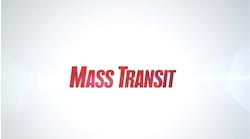AMPLY Power was selected by SolTrans to manage the agency’s charging of electric buses.
Unique to this application, AMPLY is operating its cloud-based software in conjunction with the fueling of SolTrans buses that run on compressed natural gas (CNG). Soltran’s Operations and Maintenance Facility is now optimized for energy use and demand charge avoidance through AMPLY’s hardware-agnostic software solution and operational processes.
“Today, almost 100,000 of our trips on local bus routes are operating with zero emissions,” said Elizabeth Patterson, board chair at SolTrans. “This electric growth for SolTrans meant that we had to build a process of managing these fleets while keeping costs down, and that’s where the AMPLY team came in. By its data-driven approach to operationalizing our electric fleet, AMPLY Power provides us the confidence to continue our growth into full electric deployment.”
At SolTran’s Facility, AMPLY Power installed a cloud-based smart charging system that monitors the charging status and power levels in real-time, deploying algorithms to minimize utility demand and time-of-use rate charges. AMPLY’s cloud-based system keeps utility costs down by optimizing EV charging and other energy use in the depot’s operations. When the CNG compressors turn on, AMPLY Power immediately reduces or suspends the EV charging stations to ensure that the 15-minute power will not increase electricity demand costs. This is believed to be a first for managing total fuel costs across vehicle types, according to AMPLY Power.
"The AMPLY Power team helped us understand how to collectively control our energy costs while still ensuring all of our electric and CNG buses are fueled and ready to serve our community,” said Patricia Carr, general services manager at SolTrans. “Here in Vallejo, we've heard from many residents over their concerns about air pollution. AMPLY’s technology is helping us transition to zero-emission by 2032."
Recently, SolTrans announced it would increase its service to riders as the state reopens from the shelter-in-place orders brought on by the COVID-19 pandemic.
Currently, the transit agency’s fleet consists of 44 percent non-diesel vehicles; Bay Area Air Quality Management District (BAAQMD) funded two of the four battery-electric buses, one CNG bus and 21 diesel-hybrid buses. In addition, it is running two CNG paratransit vehicles, and 16 in its SolanoExpress fleet. SolTrans has four charging stations at its Operations and Maintenance Facility.


